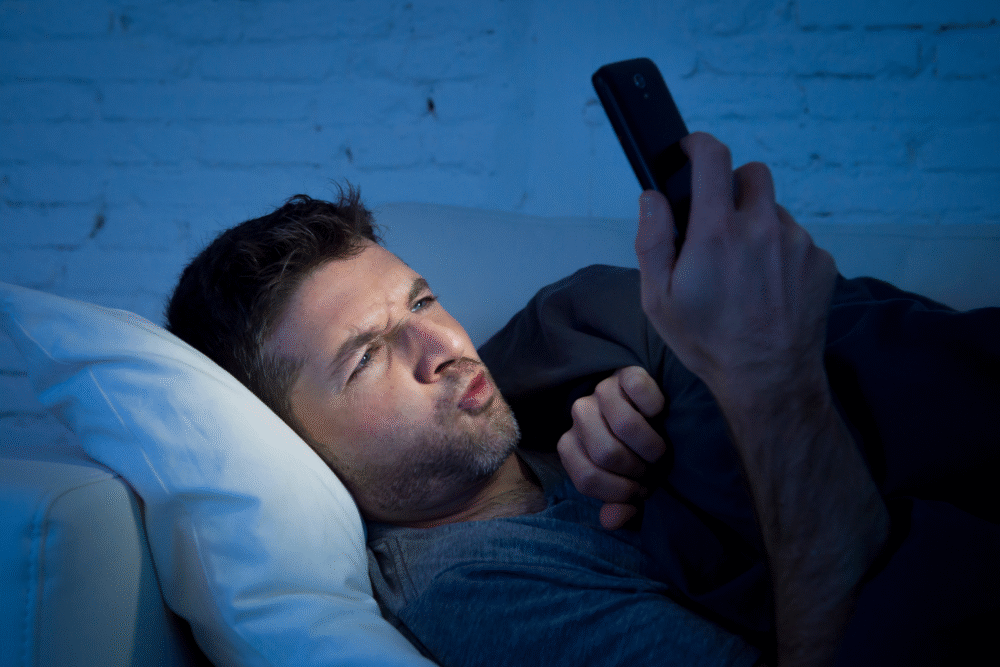When the highlight reel becomes your daily mirror, self-worth takes a hit.

Instagram wasn’t built to reflect real life—it was built to showcase the polished, the curated, and the spectacular. And yet, we scroll like it’s gospel. That filtered perfection doesn’t just change how we see others—it reshapes how we see ourselves. Over time, it’s easy to forget that every square you’re swiping past has been softened, tweaked, or staged. What started as fun photo-sharing quietly turned into a mental measuring stick.
It doesn’t help that algorithms push the shiniest versions of people to the top. Suddenly, your natural skin texture looks “off,” your travel pics seem dull, and your life feels small next to influencers who always seem to be glowing and thriving. Even when you know it’s all curated, your brain starts comparing anyway. It’s not always about envy—it’s about feeling less-than without realizing why. These are nine subtle, sneaky ways Instagram can warp your self-image, often without you even noticing it’s happening.
1. You start comparing your real face to filtered ones.

At first, the filters seem harmless—just a bit of smoothing here, some brightening there. But after seeing yourself through those beauty lenses for weeks or months, your actual face starts looking wrong in comparison, according to Mark Travers Ph.D. at Psychology Today. The lines, pores, and shadows that make you human suddenly feel like flaws to be fixed.
It’s not just about vanity—it messes with how you interpret your own reflection. Many people start disliking their unfiltered selfies or avoid being in photos altogether. What was supposed to be fun turns into quiet self-rejection. The more you rely on filters, the more your unfiltered self starts to feel like a disappointment.
2. You measure your worth in likes and comments.

Even if you don’t want to admit it, that little hit of validation when someone hearts your post feels good. Over time, though, your brain can start chasing that buzz. A post that gets fewer likes than expected? It doesn’t just flop—it feels like you flopped.
You begin second-guessing your appearance, captions, and even your personality based on how people respond. Instagram turns into a scoreboard, with each post becoming a risky bet on how people perceive you, as reported by Kelly Oakes at BBC. It trains you to attach your self-esteem to an invisible audience—and that’s a game you’ll never win.
3. You forget that most “authentic” content is still staged.

It’s easy to assume the posed, glamorous shots are curated, but what about the “real life” ones? The ones where someone’s crying, showing off their stretch marks, or talking about failure? Even those are often rehearsed, edited, and timed to perfection. Vulnerability becomes another aesthetic.
So when you compare your truly messy, off-camera life to someone’s picture-perfect imperfection, it can feel like you’re doing life wrong, as stated by Vicky Spratt at Refinery29. You start doubting your raw moments because they don’t come with mood lighting or poetic captions. Even authenticity, when filtered, can mess with your sense of reality.
4. You associate happiness with aesthetics.

Scroll long enough and you start to equate joy with certain colors, outfits, or vacation spots. People don’t just look happy—they look like happiness, in every perfectly composed frame. Your brain quietly connects being happy with looking like those photos, even if you know they’re styled.
This makes your own joy feel less valid if it doesn’t come with an aesthetic backdrop. You question your contentment if it doesn’t look “Instagrammable.” Over time, you may begin curating your own moments more than actually living them—just to convince yourself they’re real.
5. You view success as something photogenic.

Success on Instagram isn’t about internal peace or quiet wins—it’s about visuals. The house, the body, the wedding photos, the passport stamps. Even burnout can be dressed up as a stylish hustle. So if your life doesn’t look like a montage of milestones, you may feel like you’ve fallen behind.
You can be thriving in real life and still feel like a failure online. Instagram celebrates what can be captured in a square. That leaves a lot of deep, meaningful growth completely invisible—and therefore, easy to devalue in your own eyes.
6. You compare your timeline to someone else’s highlight reel.

We all know people post the best parts of their lives. Still, it’s hard not to internalize their wins as benchmarks for your own. If they bought a house, you start worrying about your apartment. If they got married, you wonder why you’re still swiping. If they had a kid, you start questioning your career path.
It doesn’t matter that you’re on a different track entirely. Instagram turns everything into a race with invisible checkpoints, and it’s exhausting. You’re living a full, unique life, but it starts feeling like a delay when stacked against someone else’s curated fast-forward.
7. You start dressing for the photo, not the moment.

Outfits used to be about how you felt. Now, you may find yourself reaching for what looks good on camera, regardless of how it feels. Some people admit they change clothes before brunch just to get a shot that fits their feed’s vibe. That tiny adjustment starts to shape how you move through the world.
Suddenly, spontaneity gets filtered through a lens of content strategy. Even your downtime might be curated. The goal shifts subtly: instead of enjoying the day, you’re focused on capturing it in a way that earns approval online. You’re living for the double tap.
8. You start doubting your worth in everyday settings.

When you spend time surrounded by raw, real people in your offline life, things can feel… dull. No perfect lighting. No pastel cafés. No aspirational captions. Just people, flaws and all. If your brain’s been conditioned by Instagram visuals, this can feel underwhelming.
You may catch yourself feeling “less than” while doing something as ordinary as grocery shopping or hanging with friends. But real life isn’t a photo shoot—and those unscripted moments are where most joy happens. Instagram just isn’t built to celebrate the ordinary, so it can trick you into thinking ordinary means unworthy.
9. You chase perfection without realizing it’s a trap.

Instagram encourages tweaking, editing, and tweaking again—until nothing looks real anymore. The bar gets higher, and your standards for yourself get tighter. Eventually, you’re chasing an idea of perfection that doesn’t actually exist. But your brain doesn’t know that.
It just knows you’re always almost there. Almost good enough, almost attractive, almost impressive. That feeling never quite goes away. Instead of being proud of who you are, you start scanning yourself for flaws the camera might catch. The chase for perfection becomes a habit—and it’s hard to remember how to just be.
